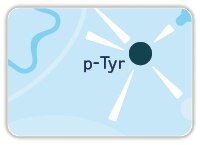Experimental inoculation of juvenile rhesus macaques with primate enteric caliciviruses.
Sestak, K; Feely, S; Fey, B; Dufour, J; Hargitt, E; Alvarez, X; Pahar, B; Gregoricus, N; Vinjé, J; Farkas, T
PloS one
7
e37973
2012
요약 표시
Tissue culture-adapted Tulane virus (TV), a GI.1 rhesus enteric calicivirus (ReCV), and a mixture of GII.2 and GII.4 human norovirus (NoV)-containing stool sample were used to intrastomacheally inoculate juvenile rhesus macaques (Macaca mulatta) in order to evaluate infection caused by these viruses. METHODOLOGY & FINDINGS: Two of the three TV-inoculated macaques developed diarrhea, fever, virus-shedding in stools, inflammation of duodenum and 16-fold increase of TV-neutralizing (VN) serum antibodies but no vomiting or viremia. No VN-antibody responses could be detected against a GI.2 ReCV strain FT285, suggesting that TV and FT285 represent different ReCV serotypes. Both NoV-inoculated macaques remained asymptomatic but with demonstrable virus shedding in one animal. Examination of duodenum biopsies of the TV-inoculated macaques showed lymphocytic infiltration of the lamina propria and villous blunting. TV antigen-positive (TV+) cells were detected in the lamina propria. In most of the TV+ cells TV co-localized perinuclearly with calnexin--an endoplasmic reticulum protein. A few CD20+TV+ double-positive B cells were also identified in duodenum. To corroborate the authenticity of CD20+TV+ B cells, in vitro cultures of peripheral blood mononuclear cells (PBMCs) from healthy macaques were inoculated with TV. Multicolor flow cytometry confirmed the presence of TV antigen-containing B cells of predominantly CD20+HLA-DR+ phenotype. A 2-log increase of viral RNA by 6 days post inoculation (pless than 0.05) suggested active TV replication in cultured lymphocytes.Taken together, our results show that ReCVs represent an alternative cell culture and animal model to study enteric calicivirus replication, pathogenesis and immunity. | 22666426
 |











